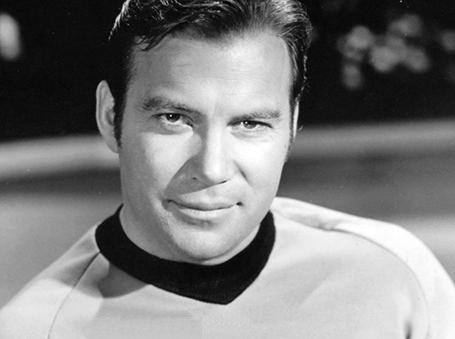Sara Jacobovici – When Captain Kirk Meets Rabbi Sacks
“Let That Be Your Last Battlefield” is the fifteenth episode of the third season of the original American science fiction television show Star Trek. The Starship Enterprise has on board two aliens with the most striking feature of their skin being black on one side and white on the other. Each one represents one of the two groups of peoples who inhabit a planet about to be destroyed by civil conflict. They themselves are literally at each other’s throat while on the Enterprise.
When the Enterprise arrives at the planet, there is no sign of intelligent life and the two realize they are each the only ones left of their peoples. Enraged, they attack each other. Captain Kirk breaks them up and in utter perplexity asks them how they can continue to fight each other when they realize that this hatred is what destroyed their peoples? Where does this hatred stem from? Their answer was to say how incredulous they were that Captain Kirk could not see how different they were from each other; one was black on the left side and white on the right side while the other was black on the right side and white on the left side.
The message of the creator of Star Trek, Gene Roddenberry, hits home when I witness how we, as a Jewish people, have become polarized; one side identifying itself as being observant, the other as not being observant.
“…External crisis unites Jews; internal belief divides.” This statement by Rabbi Jonathan Sacks echoes what has been said of us for centuries. It continues to be relevant today after seventy years when, against all odds, the Jewish people succeeded in having regained a piece of this earth that we can call home. Rabbi Sacks States:
“This is the paradox. In their own land, the place where every other nation is to some degree united, Jews were split beyond repair. In dispersion, where every other nation has assimilated and disappeared, they remained distinctive and, in essentials at least, united. There is something surpassingly strange about Jewish peoplehood.”
I experienced this “strangeness” this past week when I was privileged to accept an invitation to the dedication of a new Sefer Torah in honor of the son of a friend who had passed away last year. First, I attended the writing of the final letters by the family at the home of the parents, and then was part of the procession of the Torah to its new home.
When the procession stopped and the singing and dancing that took place through the streets continued in front of the synagogue before it was taken inside, I took in this picture that was unfolding in front of me.
The new Sefer Torah was joined by the older ones and the people dancing and singing around this group of Torahs were as diverse as could be; men and women, young and old, every shade of skin color, every form of dress, those who were familiar with the songs being sung, those who were experiencing this event for the first time, a variety of accents, native Israelis, Olim and visitors. The Rabbis, too, were as diverse as some were dressed in black, some in jeans with tallis hanging from their shirts and wearing knitted kippas, some in a jacket and dress pants with a dark kippa. And what of the synagogue? A small Mizrachi “store front” surrounded by a Pizza place, hairdresser, a bus office where I renew my Rav Kav. Inside the small synagogue during services I saw a mother praying while her young daughter was beside her wearing a judogi (Judo uniform) holding a small trophy which she had just won at a competition she was in before this event.
I stopped and asked myself, where does our divisiveness stem from? Didn’t we make it this far in time and place together? Here we are on the streets of a city in Israel, freely sharing our differences in a common event.
Afterwards, what struck me was that the reason we were all able to be in this event together was time; we were engaged in an ancient tradition in the present while establishing a connection with our future. As long as we do not detach ourselves from time by negating the past and not bothering about the future, we can express our diversity in our unity.










